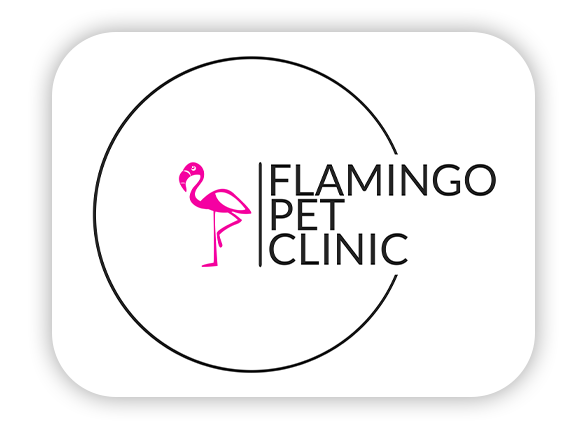Reptiles offer some wonderful charms and benefits. They’re quiet, don’t need training, and don’t really create messes or foul odors. They can also be a great pet for apartment dwellers, and/or anyone who is allergic to dogs or cats. However, they do have very specific care needs. It’s important to do plenty of researching before deciding to adopt one of these fascinating animals. A Las Vegas, NV vet offers some things to consider before.
Do Your Research
There are dozens of types of reptiles commonly sold as pets, and many more less well-known ones. These guys vary widely in terms of diet, habitat needs, expected adult size, and lifespan. Make sure you know what you’re getting into! Do lots of reading, and ask your vet for advice.
Choosing A Beginner Breed
Reptiles are quite fragile, and can quickly get sick if their food and/or conditions are less than optimal. If you’ve never had one before, choose one that’s easy to care for. Some good snake options are milk snakes, corn snakes, and rosy boas. For lizards, the Bearded Dragon and Leopard gecko are both great choices. If you’re considering a gecko, you might want to check out our article on Gecko Care Mistakes to avoid common pitfalls. Of course, there are many other options.
Buy Responsibly
Always go through a reputable source or breeder when buying a reptile. There is unfortunately still a fairly strong black market for illegal exotics, many of which are animals that were captured wild.
Choose A Healthy Pet
Nursing a sick animal back to health is a noble undertaking, but this is also something best left to experts. Choose a reptile that is alert, active, and has good body condition. Some things to look for are clear eyes, smooth breathing, and healthy skin or scales. Ask your vet for more information.
Habitat
Getting the environment set up properly is more than half the battle. You’ll want to have your pet’s habitat set up before you bring them home. The exact size tank or terrarium you’ll need will depend on the type of reptile you get, as will the environmental conditions you’ll need to recreate. Most reptiles require fairly warm environments, and many also need UVA/UVB lighting and high humidity levels. It’s worth investing in quality equipment. Ask your vet for specific care advice.
Our Advice on Choosing Your First Reptile in 2024
What are the typical lifespans of common pet reptiles?
Common pet reptiles have varied lifespans depending on their species. For example, Bearded Dragons typically live between 10 to 15 years, while Leopard Geckos can live up to 20 years when properly cared for. Corn snakes are known to have a lifespan of around 15 to 20 years, and milk snakes similarly can live for 10 to 20 years. These lifespans reflect optimal care conditions, including proper diet, habitat, and health management, which are crucial for ensuring the longevity of these reptilian pets. Regular veterinary visits are also essential to maintaining their health over the years.
How often do reptiles need veterinary check-ups?
Reptiles require regular veterinary check-ups to ensure they are healthy and their living conditions are optimal. It is recommended that new reptile pets have an initial veterinary evaluation soon after acquisition, and annually thereafter. However, more frequent check-ups may be necessary for certain species or those with known health issues. During these visits, a veterinarian can assess the reptile’s overall health, review dietary and habitat conditions, and recommend any needed adjustments. Preventative care is crucial for catching potential health problems before they become more serious.
What are the average monthly costs associated with keeping different types of pet reptiles?
The average monthly costs of keeping pet reptiles vary significantly based on the type of reptile. For smaller lizards like Leopard Geckos, expenses can be as low as $20-$30, primarily for food and substrate changes. Bearded Dragons might cost slightly more, around $30-$50 per month, due to their larger habitat and varied diet needs. Snakes such as corn snakes also fall into this range. Larger or more exotic reptiles, such as certain types of snakes or turtles, can cost $50-$100 or more each month, depending on dietary and habitat maintenance requirements.
How do the dietary needs vary among different reptile species, and what are the challenges in meeting these needs?
Dietary needs among reptile species vary widely, presenting several challenges in providing proper nutrition. Herbivorous reptiles like certain tortoises require a diet rich in leafy greens and vegetables, while carnivorous species such as many snakes need a diet consisting of whole prey like rodents. Omnivorous reptiles like Bearded Dragons need a balanced diet of insects, vegetables, and occasional fruit. Challenges include ensuring the freshness and variety of food, providing appropriate vitamin and mineral supplementation, and managing feeding frequency and quantity to prevent obesity or malnutrition.
What are the most common health issues faced by pet reptiles?
Pet reptiles commonly face several health issues, primarily related to inadequate husbandry. Nutritional deficiencies are frequent, particularly metabolic bone disease due to insufficient calcium or vitamin D3, which affects bone development. Respiratory infections are also common, often resulting from improper humidity or temperature levels. Parasitic infections, both internal and external, can occur if hygiene and enclosure cleanliness are not maintained. Additionally, stress-related problems can arise from inadequate habitat size or lack of environmental enrichment. Proper care and regular veterinary check-ups can help mitigate these issues.
Proper husbandry is crucial for the health and well-being of any reptile pet. Our Husbandry for Reptiles service offers expert guidance on creating and maintaining the ideal environment for your new scaly friend. From setting up the correct temperature gradients to choosing the right substrate, we can help you ensure your first reptile thrives in its new home.
As your local Las Vegas, NV animal clinic, we are dedicated to offering top notch veterinary care. Please feel free to contact us anytime!
